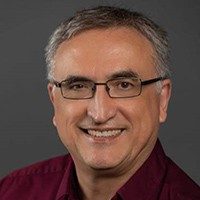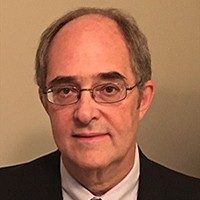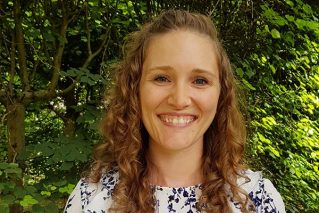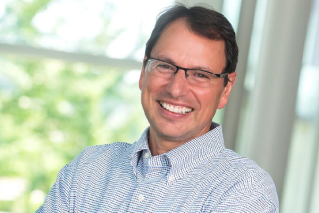Someone pointed out that in times like these, “Science matters.” What impact will this pandemic – and global scientists’ efforts to subdue it – have on the level of appreciation the public and policy makers have for science?

This is the Super Bowl for scientific credibility. When we create tests, we have to get it right first time. When we invent and test vaccines, they have to be safe and effective—and yes, I know everyone wants speed, but you can’t give in to that. A bad answer, done quickly, has consequences. A good answer gotten a little more slowly has fewer consequences.
So, yes. Science matters. Scientific method and methodologies matter. Being careful and getting it right matters. Telling the truth as you see it at the time matters even if circumstances change that reality. And when you’re not sure, say so. People can live with humility and the truth. Lie to them once, even with good intentions, and it all changes. - Bill Carroll, Carroll Applied Science, LLC

I think we need to connect the dots for the public on the fact that this is science. There is still far too much false information being pushed to the public. Additionally, I’m concerned that the general public makes a distinction between medicine and science - Amber S. Hinkle, Vice President, Plant Manager PET Channelview & PO JV NAFTA Operations, Covestro LLC

I hope the public and the policy makers have a better appreciation for science and scientists after the pandemic. We certainly need scientists and health professionals in order to deal with this pandemic and with other problems in the future. - H. N. Cheng, Research Chemist, USDA Southern Regional Research Center

I was optimistic that the war on science and the disregard of experts would both fade with the pandemic. Anthony Fauci receiving death threats proved my optimism premature. Science is not a religion. Science is not something I believe in. Science is a tool that informs decisions. I know the scientific method, correctly applied, is the best tool for addressing challenges like the pandemic. It is a method for learning about and altering the world. Skepticism is foundational in the scientific method. Informed hypothesis generation, testing, analysis and refinement form the basis for the scientific method. Data informs decisions in science. Hunches aren’t science. Anecdotes aren’t science. The drugs and vaccines that ultimately stop this horror will be products of science made by experts. I can muster hope that public appreciation will come. Sadly, I believe the return of anti-vaxxers is more likely. - Mark Jones, The Dow Chemical Company

In the aftermath of World Wars I and II, pandemics such as the 1918 flu, typhoid, small pox, malaria and polio gave rise to many governmental programs globally. The public became more aware of the critical nature of scientific research. Vaccination became more accepted and required as a mean to best protect the populations.
The COVID-19 war is with what some call the Invisible Enemy. Unlike other wars, this enemy is not discriminatory and has no alliance with any specific group. I believe more people realize now that globally we had become complacent in the overall support of scientific research. The defense of our nations and economies is linked to the health and welfare of our people more than most had realized.
I believe that going forward, the general public will have a better understanding of the efforts (teaching, manpower and funding) needed in both basic and applied scientific research. I hope that they will be able to understand that these efforts can produce great benefits to solve specific problems quickly, but that not all such issues are so readily solved.
We must continue to be diligent in the distribution of efforts in solving the many scientific and social issues in the world. New vaccines and new technologies will still need to be properly validated and regulated in order to ensure the best and most effective technologies are being used. Retrospective review of data and continued improvements in modeling techniques (especially in identifying the critical parameters) will be needed. - Rodney Bennett, Winding Trails, LLC


For the short term, we’ll see public appreciation for science and chemistry surge. Cleaning and disinfectant products, medical supplies and PPE, and even single-use plastics are all part of our arsenal to fight this virus We see scientific and medical experts on all news shows. Hopefully, this will continue into the future with support for scientific advances in medicine and climate science. The BBC routinely broadcasts documentaries on chemistry, physics, medicine, and mathematics on mainstream channels. It would be great to see that happen in the US to improve the level of scientific literacy. - Carolyn Ribes, Business Analytical Leader, The Dow Chemical Company and Al Ribes, Human Resources Global Metrics Lead, The Dow Chemical Company

Unfortunately, much of the science that is presented to the public is presented through political filters which severely impact the message. In a similar fashion, much of the science that is presented to our policy makers is heard through political filters and they will make policy based on politics rather than science. Likewise, many scientists often interpret their results with a political spin as opposed to presenting information with an inherent uncertainty in its interpretation.
These political influences have been to the detriment to all science – the public is losing trust in its major scientific organizations such as the Centers for Disease Control (CDC), the National Institute of Health (NIH) and the National Institute for Occupational Safety and Health (NIOSH), just to name a few.
With respect to the degree of appreciation for the scientific community by public and policy makers? I suspect it will be relatively unchanged in the long run. About half the public and policy makers will point to the community and say “Thank you for your work, we appreciate what you’ve done during these times” and the other half will say, “I told you that you were all wrong.” - Harry Elston, Midwest Chemical Safety, LLC

It is too early to assess impact. At times, there seems to be an adversarial relationship between the science and the politics. However, the politics seem to acquiesce to the science following a short period of rhetoric, which helps illustrate the critical role science is playing in combating the virus.
At present, focus has rightfully been on addressing the issue and how to handle the health and economic impact. Yet messaging should be developed that having experienced deep science ready to go is a vital step in combating this and other crises. Cuts to funding of key agencies, the exodus of experienced scientists, and overall staff reductions have impeded readiness. As with the military, the scientific community needs to maintain readiness to avoid or minimize the impact of future crises.
Nevertheless this creates an opportunity to extoll the benefits of science and specifically chemistry. It may be appropriate to develop and execute communications to explain the role how chemistry has enabled identification of the virus, the key role chemistry plays in testing and the role chemistry plays in developing treatment options.
There was an old TV show that illustrated connections between societal advances and a book Chemistry Connections: The Chemical Basis of Everyday Phenomena. This might be a great opportunity to create a connections like series on the chemistry of virus identification, the chemistry of the PCR testing, the chemistry of rapid testing, the chemistry of treatment options, modeling and design of antiviral treatments, and the role of chemistry in vaccine development. - Michael Morello, Retired R&D Director Analytical Sciences: Volatile Flavor Analysis/Global R&D Fellow, PepsiCo

The people impacted by COVID-19 deserve support and sympathy. Certain places in the world were more successful at preventing the spread of COVID-19. The public and policy makers can adopt successful methods from places in the world that have very few cases of COVID-19 despite greater risk for exposure, such as Taiwan. - Mike Appell, Research Chemist, USDA National Center for Agricultural Utilization Research
The opinions expressed in this article are the author's own and do not necessarily reflect the view of their employer or the American Chemical Society.
Copyright 2022 American Chemical Society (All Rights Reserved)








